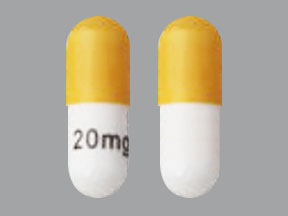Temozolomide Disease Interactions
There are 4 disease interactions with temozolomide.
Temozolomide (applies to temozolomide) urticaria
Major Potential Hazard, High plausibility. Applicable conditions: Allergies
Temozolomide is contraindicated in patients with a history of urticaria, allergic reaction including anaphylaxis, toxic epidermal necrolysis, and Stevens-Johnson syndrome.
Temozolomide (applies to temozolomide) hepatic impairment
Moderate Potential Hazard, Moderate plausibility. Applicable conditions: Liver Disease
A study showed that the pharmacokinetics of temozolomide in patients with mild-to-moderate hepatic impairment (Child-Pugh Class I - II) were similar to those observed in patients with normal hepatic function. Caution should be exercised when temozolomide is administered to patients with severe hepatic impairment.
Temozolomide (applies to temozolomide) myelosuppression
Moderate Potential Hazard, High plausibility. Applicable conditions: Bone Marrow Depression/Low Blood Counts, Pancytopenia
Patients treated with temozolomide may experience myelosuppression, including prolonged pancytopenia, which may result in aplastic anemia, which in some cases has resulted in a fatal outcome. Prior to dosing, patients must have an absolute neutrophil count (ANC) greater than or equal to 1.5 × 109/L and a platelet count greater than or equal to 100 × 109/L. A complete blood count should be obtained on Day 22 (21 days after the first dose) or within 48 hours of that day, and weekly until the ANC is above 1.5 × 109/L and platelet count exceeds 100 × 109/L. Therapy with temozolomide should be administered cautiously in patients with compromised bone marrow reserve. Close clinical monitoring of hematopoietic function is recommended.
Temozolomide (applies to temozolomide) renal impairment
Moderate Potential Hazard, Moderate plausibility. Applicable conditions: Renal Dysfunction
Temozolomide population pharmacokinetic analysis indicated that creatinine clearance over the range of 36 to 130 mL/min/m2 has no effect on its clearance after oral administration. The pharmacokinetics of temozolomide have not been studied in patients with severely impaired renal function (CrCl <36 mL/min/m2). Caution should be exercised when temozolomide is administered to patients with severe renal impairment. Temozolomide has not been studied in patients on dialysis.
Switch to professional interaction data
Temozolomide drug interactions
There are 278 drug interactions with temozolomide.
More about temozolomide
- temozolomide consumer information
- Check interactions
- Compare alternatives
- Pricing & coupons
- Reviews (10)
- Drug images
- Side effects
- Dosage information
- During pregnancy
- Drug class: alkylating agents
- En español
Related treatment guides
Drug Interaction Classification
| Highly clinically significant. Avoid combinations; the risk of the interaction outweighs the benefit. | |
| Moderately clinically significant. Usually avoid combinations; use it only under special circumstances. | |
| Minimally clinically significant. Minimize risk; assess risk and consider an alternative drug, take steps to circumvent the interaction risk and/or institute a monitoring plan. | |
| No interaction information available. |
See also:
Further information
Always consult your healthcare provider to ensure the information displayed on this page applies to your personal circumstances.


